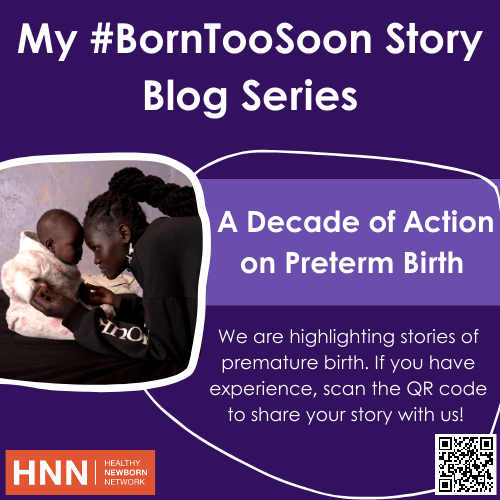This story is part of the My #BornTooSoon Stories Blog Series, you can read the rest of the blogs here. It was originally published here.
In many African families elder siblings are responsible for looking after younger ones at home. That was the case in Professor Chinyere Ezeaka’s childhood home: as an elder child, she spent much time taking care of her younger siblings. She says that that role of caregiver influenced her career choice: paediatrics beckoned.
“As a young girl I kept wondering how doctors ‘spoke’ to these tiny humans. How could doctors know when and where babies are unwell, when the babies cannot talk? That fascinated me.”
Professor Ezeaka is the head of the Neonatology-Perinatology Unit at the Lagos University Teaching Hospital, Nigeria and a founding member and past National President of the Nigerian Society of Neonatal Medicine. For more than 20 years she has championed newborn health, and is actively involved in advocacy, teaching, clinical practice and research.
“When I started, most activities were centred solely on maternal and child health with the newborns falling in between the cracks. There was no discussion of newborns as a unique, separate entity that needed attention on their own, away from infants and older children.” But she realized that, unless newborn deaths were reduced, “as a country, a continent, and even globally, it would not be possible to achieve significant reduction in under-5 mortalities.”
Over the last two decades, Professor Ezeaka has seen a shift in newborn health care, with more focus on reducing deaths from preventable causes, including preterm births. Partnership has been a key ingredient to success.
“There has been a lot of synergy and momentum in countries; one group cannot do it alone. There have been collaborations between governments, development partners, neonatologists and many other stakeholders to work on national protocols and policies to benefit newborns and their families at all levels of care.”
Professor Ezeaka is optimistic that change can be achieved in sub-Saharan Africa. “Targets have been set for newborn health, and many countries are expediting actions to meet those targets with committed leadership and partnerships.”
In the next decade, she wants to see greater emphasis on quality care for the small and sick newborn. She wants “more investments in technology and innovations, equipment and machines. Many of these newborns are dying because they don’t have access to evidence-based interventions that should be available to all.”
Professor Ezeaka has had many opportunities to work outside Nigeria but she remains dedicated to remaining in Nigeria to strive and advocate for all our vulnerable newborns who are “tomorrow’s future.”

Chinyere Ezeaka teaching a medical team to operate CPAP machine and oxygen splitter devices
